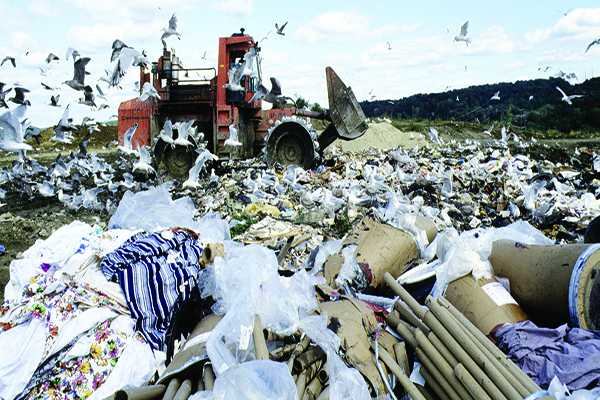Francistown clogged environmental pollution
One of the challenges facing c as it celebrates its 120 years anniversary this year is environmental pollution particularly from scrap metal, broken glass, builders’ rubble and plastic bags.
Other waste includes hazardous waste from factories, medical waste, discarded batteries and bottles. There is also the problem of open defecation and urination in the city. All this blights the slogans of hope such as the City of Gold or the City Of All Things Precious that the city has been called by.
Francistwn City Council (FCC) needs to invest much more money both on public education and a clean-up campaign if it is to deserve the slogans. According to Shashidhar Vinodhkumar of the Linkoping University in Sweden, solid dumping of waste and widespread littering has become a serious problem in the country in general.
Compounding the problem is that in Botswana, there is no proper waste management despite the existence of the Waste Management Act. The academic notes that in Botswana, waste is dumped into landfills without any recycling.
Lack of public awareness is one of the main problems with the country’s waste management programme. Vinodhkumar observes that, infrequent collection of waste, an improper waste management plan without recycling stations, the absence of public-private partnership between government and the private sector, all contribute to the failure to defeat the menace of littering in Francistown.
He also faults lack of public awareness as a major cause for indiscriminate littering. Not only is littering unsightly, it also has economic implications for the concerned place. Littering chases away investors and tourists both who want places that are clean, fresh and healthy to do business and visit.
Through its Vision 2022, Francistown wants to be an economic hub by 2022. The Managing Director of Sangwenu Environmental Consultancy, Unangoni Mangole, shares some of Vinodhkumar’s views on the flaws in waste management efforts of the country. “Lack of public education is a serious problem and we will not go anywhere until we get over this deficiency,” said Mangole.
Although the law exists, there is a need for a change of mindset among the people. “People must not expect government to address this problem alone. There is this dependency syndrome where people expect government to even buy them litter bins. Our environment is finite hence the need for us to look after it,” explained Mangole adding that legislation is fine.
“It is important for us as individuals to understand the threat posed to our lives by environmental degradation and pollution,” said Mangole. He called for the involvement of stakeholders such as chiefs in the fight against environmental degradation. He says part of the solution to the menace of environmental degradation is to avoid the burning of litter.
“There is no need to burn biodegradable material such as grass or twigs for example in the name of cleaning the environment because, if you leave those items alone long enough, they will naturally be eaten by termites and disappear. There is no need to burn because that pollutes the environment,” said Mangole.
Mangole observed that, the private sector is also part of the problem when they should be part of the solution. “It is good that they recycle waste oil but some are guilty of spilling oil all over. We need as a country to improve our disposal system,” advised Mangole. He said there is very little that is happening in the way of recycling in Botswana.
“We also need to move away from plastic bags. We should avoid using them in the first place. They have done away with them in countries such as Uganda and the cities there are very cleaner. Filthy countries do not attract investment,” observed Mangole who thinks that, as part of education, stakeholders should invest more in competitions for cleanliness.
Just like indiscriminate dumping of waste, open defecation and urination are a problem in Francistown. For many people, it is a way of life to relieve oneself even in the back alleys of the mall which alleys have been turned into outdoor toilet streets. When asked why he thought people dropped their pants without thinking twice to bath walls with urine even a stone’s throw away from onlookers, a young man accused FCC of not providing the city with enough public toilets.
“The few that are available are too expensive at P2.00 for somebody like me who is unemployed,” he said anonymously. Toilets are an economic issue. “Those with power need public restrooms less and those with less power need them more.” The shortage of public toilets means that, taxi-men and women as well as vendors, visitors have got no choice but to urinate in public.






